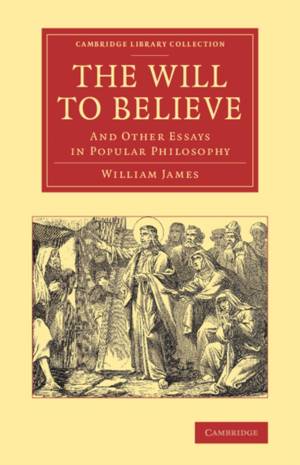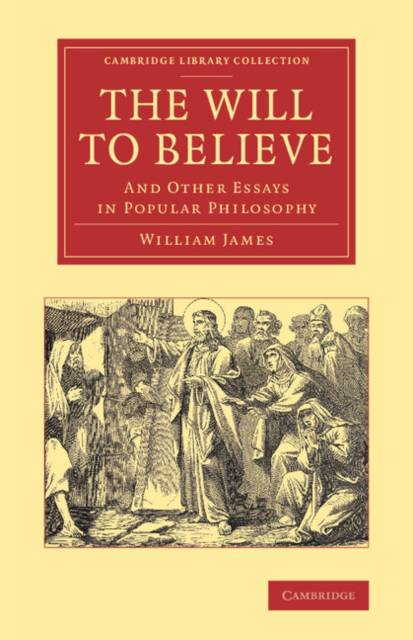
Bedankt voor het vertrouwen het afgelopen jaar! Om jou te bedanken bieden we GRATIS verzending (in België) aan op alles gedurende de hele maand januari.
- Afhalen na 1 uur in een winkel met voorraad
- In januari gratis thuislevering in België
- Ruim aanbod met 7 miljoen producten
Bedankt voor het vertrouwen het afgelopen jaar! Om jou te bedanken bieden we GRATIS verzending (in België) aan op alles gedurende de hele maand januari.
- Afhalen na 1 uur in een winkel met voorraad
- In januari gratis thuislevering in België
- Ruim aanbod met 7 miljoen producten
Zoeken
€ 83,95
+ 167 punten
Uitvoering
Omschrijving
For this 1897 publication, the American philosopher William James (1842-1910) brought together ten essays, some of which were originally talks given to Ivy League societies. Accessible to a broader audience, these non-technical essays illustrate the author's pragmatic approach to belief and morality, arguing for faith and action in spite of uncertainty. James thought his audiences suffered 'paralysis of their native capacity for faith' while awaiting scientific grounds for belief. His response consisted in an attitude of 'radical empiricism', which deals practically rather than ideologically with real-world phenomena. When facing a 'momentous' decision about belief, he says, we both can and must choose the best hypothesis. The first four essays apply this principle to religious faith, and the rest explore the pragmatic approach to such topics as determinism, ethics and individual achievement. James developed his ideas further in The Varieties of Religious Experience (1902) and Pragmatism (1907), both of which are reissued in this series.
Specificaties
Betrokkenen
- Auteur(s):
- Uitgeverij:
Inhoud
- Aantal bladzijden:
- 356
- Taal:
- Engels
- Reeks:
Eigenschappen
- Productcode (EAN):
- 9781108067232
- Verschijningsdatum:
- 20/03/2014
- Uitvoering:
- Paperback
- Formaat:
- Trade paperback (VS)
- Afmetingen:
- 140 mm x 216 mm
- Gewicht:
- 449 g

Alleen bij Standaard Boekhandel
+ 167 punten op je klantenkaart van Standaard Boekhandel
Beoordelingen
We publiceren alleen reviews die voldoen aan de voorwaarden voor reviews. Bekijk onze voorwaarden voor reviews.









